Evaluating Country Programmes - OECD Online Bookshop
Evaluating Country Programmes - OECD Online Bookshop
Evaluating Country Programmes - OECD Online Bookshop
You also want an ePaper? Increase the reach of your titles
YUMPU automatically turns print PDFs into web optimized ePapers that Google loves.
<strong>Evaluating</strong> <strong>Country</strong> <strong>Programmes</strong><br />
222<br />
The participants of the internal SDC workshops thought that the efforts<br />
required for the establishment of a country programme were disproportionately<br />
high. The duration of the elaboration of a CP could last from 3 months to 2-3 years.<br />
Much of the time was taken by the long consultation procedures at headquarters. It<br />
was considered useful to invite decision-makers from headquarters to the planning<br />
workshops in order to speed up the later consultation process. The time needed for<br />
the finalisation of the document was, in all cases, underestimated. It was often<br />
thought that too much emphasis was given to the presentation of the document.<br />
Nevertheless, the value added is seen in the elaboration process of the country<br />
programme, since:<br />
– It supports team-building efforts within the co-ordination offices.<br />
– It has a good integrating effect on the National Programme Officers (NPOs)<br />
and, where applicable, on the project leaders.<br />
– It helps to reach agreement on goals as well as on common values (corporate<br />
identity).<br />
– It increases cross-sectoral fertilisation.<br />
– And, finally, it improves the SDC’s ownership of the country programme.<br />
Where partners’ inputs were included, they were considered to be beneficial.<br />
In general, the learning process is considered as more important than the final document<br />
and this, again, leads to the tendency to give preference to self-evaluation<br />
processes.<br />
Consultants and/or facilitators played different roles in all the processes. It was<br />
recommended to maintain continuity in the advisory team in both the evaluation<br />
and planning stages, and to employ a ghost-writer, who, while following the process,<br />
would also act as a feedback partner (to “mirror the process”).<br />
Participation of other donor agencies, the partner government, the civil society<br />
and beneficiaries<br />
With regard to sector programmes, the involvement of other donor agencies is,<br />
but was not found to be, appropriate in the early stages of the country programme.<br />
Once the general direction of the CP is defined, consultation with other donors is<br />
seen as beneficial, mainly with the idea of creating synergies, and assessing jointly<br />
the development context. In this respect, the alliance with like-minded donors, or<br />
exchange within donor co-ordination groups, is sought for. This is seen as a continuous<br />
and necessary co-ordination process. Depending on the relations established,<br />
selected donors may be invited to participate in self-evaluation workshops<br />
(e.g. Peru). It was considered useful to make reciprocal portfolio analyses with the<br />
World Bank (e.g. planned in Nepal, but not executed because of timing problems),<br />
and with other bilateral donor agencies, or to participate actively in the CAR of the<br />
World Bank (e.g. Bolivia).<br />
<strong>OECD</strong> 1999



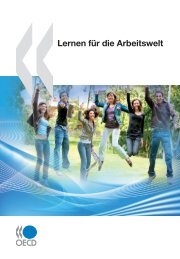

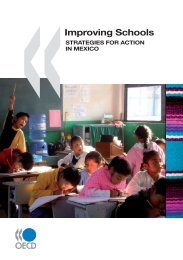
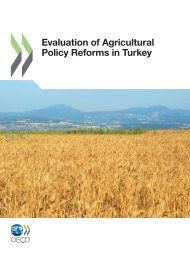
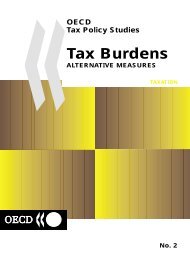
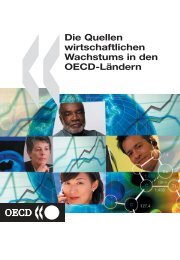
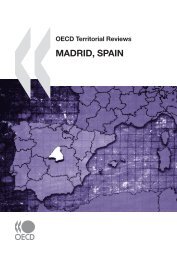


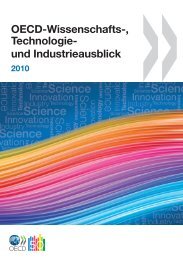
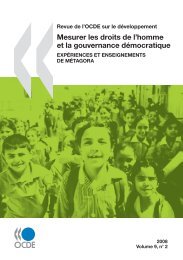
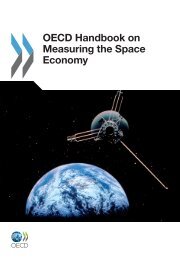
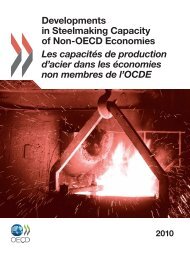
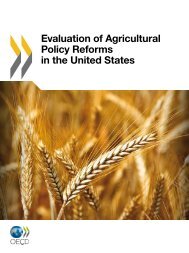
![CQE=U]^\]Z: KAZAKHSTAN - OECD Online Bookshop](https://img.yumpu.com/3915768/1/190x253/cqeuz-kazakhstan-oecd-online-bookshop.jpg?quality=85)